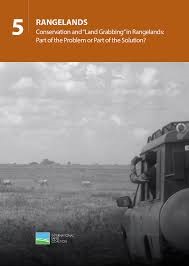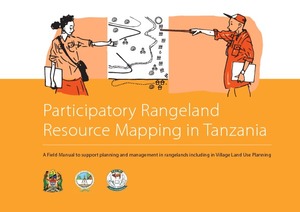Location
The International Land Coalition (ILC) is a coalition of civil society and intergovernmental organizations promoting secure and equitable access to and control over land for poor women and men through advocacy, dialogue and capacity building.
Resources
Displaying 141 - 145 of 261Guide to due diligence of agribusiness projects that affect land and property rights
This guide aims to help all stakeholders and companies who have a link with investments that affect land and property rights apply due diligence in their operations.
Conservation and “Land Grabbing” in Rangelands: Part of the Problem or Part of the Solution?
Large-scale land acquisitions have increased in scale and pace due to changes in commodity markets, agricultural investment strategies, land prices, and a range of other policy and market forces. The areas most affected are the global “commons” – lands that local people traditionally use collectively — including much of the world’s forests, wetlands, and rangelands. In some cases land acquisition occurs with environmental objectives in sight – including the setting aside of land as protected areas for biodiversity conservation.
Conservation and “Land Grabbing” in Rangelands: Part of the Problem or Part of the Solution?
Large-scale land acquisitions have increased in scale and pace due to changes in commodity markets, agricultural investment strategies, land prices, and a range of other policy and market forces. The areas most affected are the global “commons” – lands that local people traditionally use collectively — including much of the world’s forests, wetlands, and rangelands. In some cases land acquisition occurs with environmental objectives in sight – including the setting aside of land as protected areas for biodiversity conservation.
Participatory rangeland resource mapping in Tanzania: A field manual to support planning and management in rangelands including in village land use planning
This field manual provides guidance to support, mapping, planning and management in rangelands. It is based on experiences in Tanzania, but the tools presented can be useful for other contexts too.
Participatory Land Use Planning to Support Tanzanian Farmer and Pastoralist Investment
The food security of more than 80% of Tanzania’s population and the country’s economic growth depend on family farming on certifi ed village lands. Realizing importance of smallholder’s roles in food security and economic development, the government introduced Village Land Use Planning (VLUP) as a tool towards sustainable family farming in support of green growth – a strategy for sustainably improving productivity within degrading natural resources.












